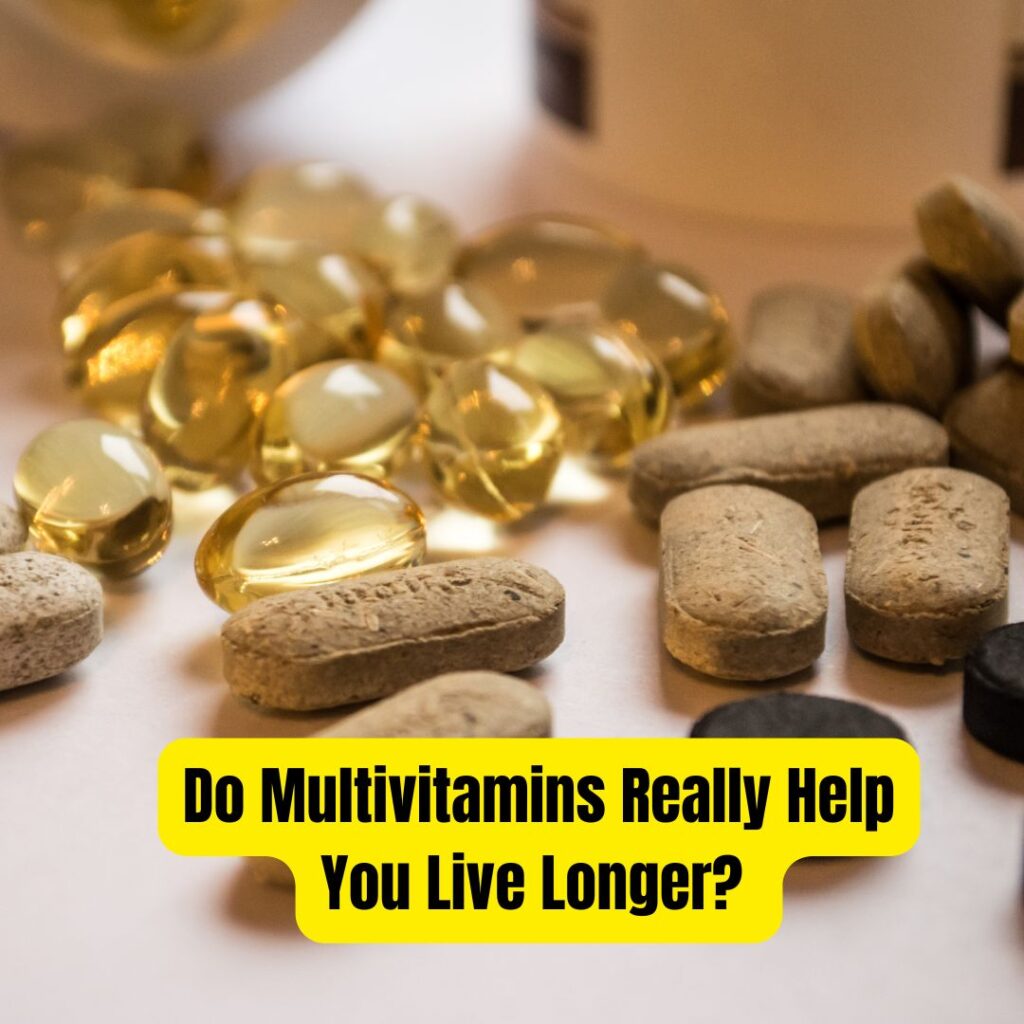Do Multivitamins Really Help You Live Longer? Uncover the Facts
Multivitamins are among the most commonly used supplements worldwide, with millions of people taking them daily in the hopes of improving their health. The idea that a simple pill can help bridge nutritional gaps and promote longevity is appealing. But the question remains: Do multivitamin really help you live longer, or is this just a marketing myth? The topic is controversial, with varying research outcomes and differing opinions from health professionals. This blog explores the science behind multivitamin, their potential benefits, and the ongoing debate on whether they truly extend life expectancy.
Understanding Multivitamins
Multivitamins are supplements that typically contain a combination of vitamins and minerals, such as vitamin A, C, D, E, B-complex vitamins, calcium, and magnesium. These nutrients are essential for various bodily functions, including metabolism, immune function, and cell regeneration. Ideally, we should get these nutrients from a balanced diet rich in fruits, vegetables, whole grains, and lean proteins. However, with busy lifestyles, processed foods, and dietary restrictions, many people turn to multivitamins as a way to ensure they’re getting enough nutrients.
The Appeal: Why People Turn to Multivitamins
The global market for multivitamin has grown significantly due to several factors:
Convenience: Multivitamins offer a convenient way to ensure you are getting a variety of essential nutrients in one pill.
Marketing Claims: Supplement companies often claim that multivitamins boost energy, support the immune system, and promote longevity.
Nutritional Gaps: Many people don’t consume enough nutrient-rich foods due to poor diet, lifestyle choices, or medical conditions.
Aging Population: As people age, their nutritional needs change, and many turn to multivitamins to maintain health and vitality.
But while multivitamins are widely used, the science behind their effectiveness is mixed, and their potential for extending life is still debated.
The Science Behind Multivitamins and Longevity
Many studies have looked at the relationship between multivitamin use and overall health, with mixed results. While some research suggests multivitamins can provide certain health benefits, there is little conclusive evidence that they can significantly extend life expectancy.
Positive Findings
Prevention of Nutrient Deficiencies: Multivitamin can be effective in preventing deficiencies in essential nutrients. For individuals with restricted diets (e.g., vegetarians, vegans, or those with food intolerances), multivitamins help ensure they get nutrients like vitamin B12, iron, or calcium that may be lacking in their diet. In this case, multivitamins can play a critical role in maintaining overall health.
Supporting Aging Populations: As people age, their ability to absorb certain nutrients, such as vitamin D and B12, decreases. Research suggests that taking multivitamins can help older adults prevent deficiencies and maintain better health, which may indirectly support longer life expectancy.
Immune Function: Some studies suggest that multivitamin containing vitamin C, D, and zinc can help improve immune function, especially in individuals with nutrient deficiencies. During times of illness or stress, multivitamins may help support the body’s ability to fight off infections, potentially contributing to better health outcomes.
Negative or Neutral Findings
Lack of Evidence for Longevity: A large-scale review of multiple studies published in the “Annals of Internal Medicine” concluded that there is insufficient evidence to support the use of multivitamin for preventing chronic diseases or extending life expectancy. The review suggested that for most people, the benefits of multivitamins are minimal if they are already eating a balanced diet.
Potential Risks of Over-Supplementation: Some studies have raised concerns about the long-term use of multivitamins, especially when taken in high doses. For example, excessive intake of certain vitamins, like vitamin A or E, can have harmful effects. A study published in the “Journal of the American Medical Association” (JAMA) found that high doses of certain antioxidants were associated with an increased risk of mortality.
Placebo Effect: Some experts argue that the perceived benefits of multivitamins may be due to the placebo effect. People who take multivitamins might also engage in other healthy behaviors, such as exercising and eating a balanced diet, which may account for any improvements in health rather than the multivitamins themselves.
Are Necessary for Everyone?
The debate about the necessity of multivitamin is ongoing. Many health professionals and researchers believe that multivitamins are not necessary for most people who have access to a balanced diet. They argue that a nutrient-rich diet should provide all the necessary vitamins and minerals, making supplements redundant.
On the other hand, proponents of multivitamin argue that modern diets often fall short of providing the necessary nutrients due to factors like soil depletion, food processing, and lifestyle choices. Additionally, certain groups—such as pregnant women, the elderly, or those with medical conditions—may benefit from taking multivitamins.
Who Might Benefit?
Although multivitamin may not be essential for everyone, they can be beneficial for specific populations, including:
Pregnant and Breastfeeding Women: Women who are pregnant or breastfeeding may require additional nutrients such as folic acid, iron, and calcium. Prenatal vitamins are a specialized form of multivitamins designed to support the health of both the mother and baby.
Older Adults: As we age, the body’s ability to absorb nutrients decreases, and certain vitamins and minerals, such as vitamin D and calcium, become more critical for bone health and immune function.
People with Restricted Diets: Those who follow restrictive diets, such as vegans or individuals with food allergies, may not get all the nutrients they need from food alone. Multivitamins can help fill in the gaps.
Individuals with Malabsorption Issues: Certain medical conditions, such as celiac disease or Crohn’s disease, can impair nutrient absorption. In these cases, multivitamins can play an important role in maintaining health.
Should You Take Multivitamins?
Whether or not to take a multivitamin is a personal decision and should be based on individual health needs. Here are some considerations to help you decide:
Consult Your Doctor: Before starting any supplement, it’s important to talk to your doctor, especially if you have any medical conditions or take medications. A doctor can recommend whether a multivitamin is necessary for you based on your diet, lifestyle, and health status.
Focus on a Balanced Diet: The best way to get essential nutrients is through a varied and balanced diet rich in fruits, vegetables, lean proteins, and whole grains. Supplements should not be seen as a substitute for healthy eating.
Avoid Mega-Doses: If you choose to take a multivitamin, opt for one that provides nutrients at or near 100% of the recommended daily allowance (RDA). Only take high-dose supplements if they are prescribed by a healthcare professional.
Conclusion
The question of whether multivitamin help you live longer remains unresolved, with mixed evidence on both sides. While multivitamin can help prevent nutrient deficiencies and support overall health for certain individuals, there is little conclusive proof that they significantly extend life expectancy for the general population. Ultimately, a balanced diet rich in whole foods is the best approach to achieving long-term health. However, for those with specific needs, multivitamins may provide a helpful supplement to a healthy lifestyle.
Disclaimer: This information is intended for general knowledge and should not replace professional medical advice. Always consult your healthcare provider before making any changes to your diet or supplement routine.


